This piece comes to us from the Wildlife Conservation Society (WCS).
Governments are poised to make new commitments to biodiversity-rich ecosystems like coral reefs this month in Montreal. To make good on those promises, countries will need access to clear, timely data to monitor their progress. Platforms like MERMAID stand ready to support governments and institutions to take action #ForCoral
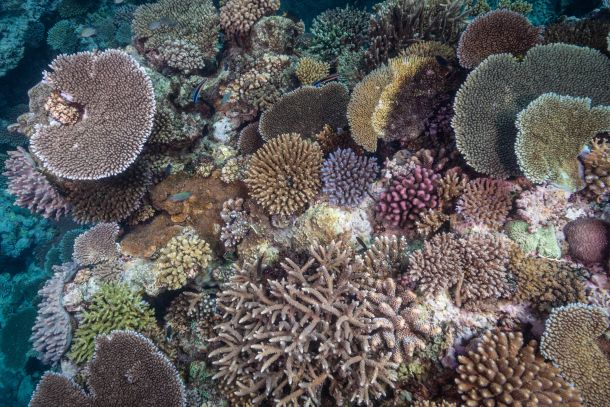
At COP15 in Montreal, live coral cover is one of the coral reef indicators proposed to the 190 Parties for the Post-2020 Global Biodiversity Framework. Photo credit: Tom Vierus/WCS.
At this week’s COP15 nature negotiations in Montreal, there is stubborn hope for an ambitious moment for nature and people: a renewed global agreement to protect the world’s biodiversity, called the Global Biodiversity Framework, that will halt biodiversity loss and chart a course to nature-positive recovery over the next 10 years.
Unlike the previous Aichi targets, which failed to halt biodiversity loss, a new agreement in Montreal feels poised to include clear and measurable targets that will galvanize urgent global action on the interdependent crises of biodiversity loss and climate change.
Coral reefs urgently need this ambitious action. At risk is an ecosystem home to over a quarter of all marine species that provide food security, livelihoods, and coastal protection to one billion people on the frontlines of climate change, and valued at USD$9.9 trillion dollars globally. Without urgent action over the next two decades, up to 90 percent of the coral reefs around the world could be lost due to climate change and pressures from pollution, overexploitation and coastal development.
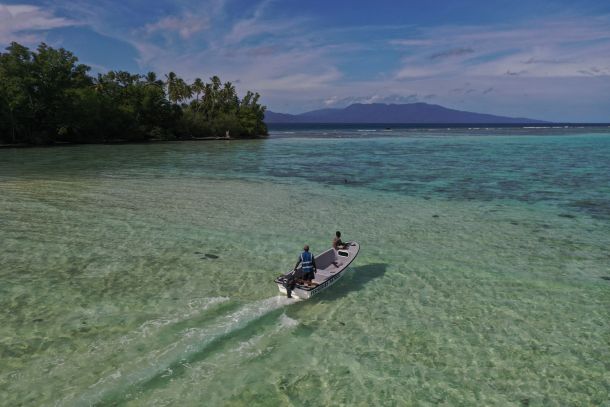
Poised to make new commitments to coral reefs at COP15 in Montreal, countries need access to clear, timely data to monitor their progress. Photo credit: Alec Hughes/WCS.
Climate action and local management matter. Scientists from WCS found that reducing emissions that cause climate change, combined with effective management, can maintain or increase the number of live corals found on reefs in the future—a critical metric of coral reef resilience. But these are scientific forecasts. To achieve nature-positive progress in the real world, governments must use data to track their progress toward retaining and restoring the integrity of coral reef ecosystems.
In Montreal, governments should place a strong emphasis on measurable targets and science-based indicators for coral reefs. How? The Global Biodiversity Framework, the international agreement that undergirds the goals and targets emerging from the conference, must include critical indicators for coral reefs, including the abundance of live hard corals and reef fish (see “Three Asks for Corals” from the International Coral Reef Initiative).
But governments should not implement complex survey protocols and data management systems individually and without coordination. While countries have understood for decades that climate change has devastating impacts on coral reefs and coastal communities, there has never been a coordinated and unified effort to improve the resilience of coral reefs globally. This is where scientists around the world can help.
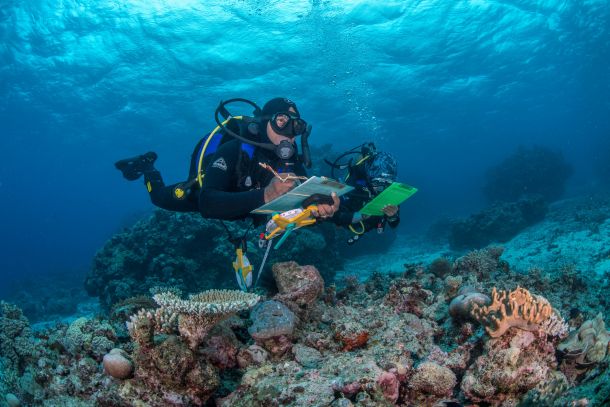
Instead of complex survey protocols and custom data management systems, existing platforms such as MERMAID can help governments measure key indicators in their commitments to the Global Biodiversity Framework. Photo credit: Tom Vierus/WCS
To catalyze a global scientific effort to track the health and resilience of coral reefs, WCS partnered with the World Wildlife Fund and Sparkgeo to develop MERMAID, the first cloud-based platform to help coral reef scientists collect and use information from underwater surveys in a standardized way.
Before MERMAID, coral reef data was often stranded on the computers of individual scientists, with no quick, standardized, or accessible way to aggregate that data across geographies to get a larger-scale snapshot of coral reef health. Advances in satellite technology, like tools created by our partners at the Allen Coral Atlas, provide important information on ocean heat waves, land-based pollution and coral reef extent. But satellites cannot see the more granular details that we need to understand if coral reefs are healthy or not. We need to be underwater to gather some of our most important data, and we needed a platform to use these data on corals and reef fish. Now, we have MERMAID.
With over 1,000 users worldwide and more than 38,000 underwater transects from 28 countries, MERMAID is poised and ready to help governments measure key indicators in their commitments to the Global Biodiversity Framework, and to support scientists all over the world in transforming their underwater insights into data-driven action to save coral reefs. This allows governments can take the pulse of their coral reefs with the latest data and actionable information.
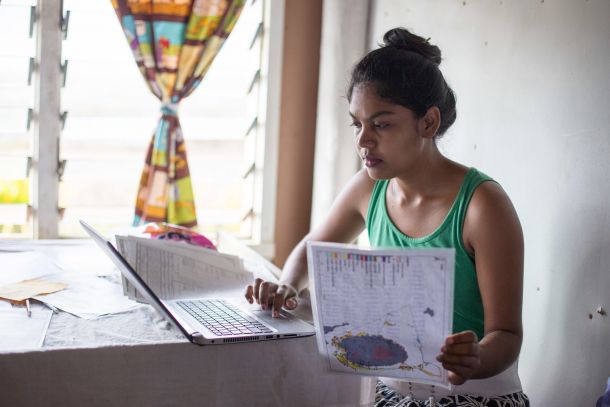
A field conservationist in Fiji digitizing data from printouts and hand-written logs. Photo credit: Emily Darling/WCS.
What’s on the line? The future of one of the world’s most vibrant ecosystems, along with the livelihoods and coastal protection of 1 billion people. Without a strong Global Biodiversity Framework, coral reefs are in jeopardy. Data must drive action alongside new approaches to financing, like the Global Fund for Coral Reefs, and crucial efforts to center the rights of Indigenous Peoples and local communities at all levels of decision-making, implementation, monitoring and evaluation in line with the provisions of the UN Declaration on the Rights of Indigenous Peoples and other human rights agreements.
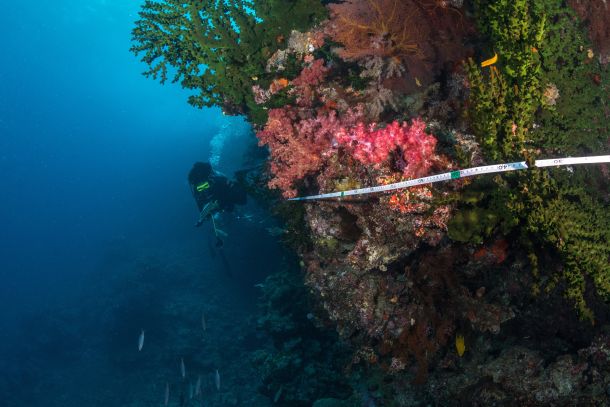
Researchers running transects on a vibrant coral reef. Photo credit: Tom Vierus/WCS
This week in Montreal, governments must guarantee a big win for coral reefs—by agreeing on an ambitious Global Biodiversity Framework. At the frontlines of climate change, there is no other option.
